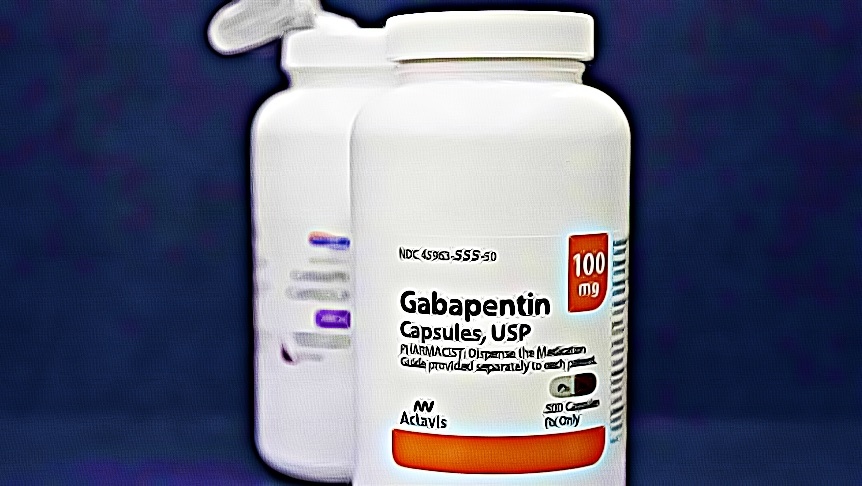One of the most prescribed medications in the health industry today is gabapentin. Millions of patients take this drug, believing that it can relieve them of pain. Although this information is true, some people are still unaware of its usage and the side effects you can get from it.
Gabapentin is an F.D.A.-approved drug used for specific treatments and in accepted doses. It is known to be an effective and safe drug intended to treat several conditions and help relieve acute and chronic pain.
Since it is quite prevalent in the health force and widely used by many, it can be quite easy for anyone to access, even if they don’t need it. Addiction to this type of drug isn’t uncommon. In a 2013 study, 15% of 503 participants admitted that they use gabapentin in addition to other medications to get high.
If you’re curious about what gabapentin is, if you know someone who’s suffering from addiction, or if you’re using this drug, it pays to know more information about this prescription drug. Keep reading if you want to know what gabapentin is and everything else you need to know about this drug.
What is Gabapentin?
It is a prescription drug that comes in different capsule forms, such as an oral tablet, an immediate-release tablet, extended-release tablet, and oral solution.
In the market, gabapentin is known as Neurontin and is also available as a generic drug, making the latter the more affordable version. Besides that, it also comes in various forms and strengths designed to treat specific illnesses and conditions, taking into account the severity of the cases.
Commonly, this drug is used to treat partial focal seizures and is often taken with other seizure medications, especially by adults and children who have epilepsy. Besides seizures, it also treats postherpetic neuralgia, which is the pain you feel from shingle-caused nerve damage.
Gabapentin is also used as an additional medication for combination therapy, meaning you may need this medication alongside other drugs.
Is Gabapentin Addictive?
While many people use this drug for legitimate medical conditions, some become addicted to its effects and abuse it.
When you misuse it frequently, you are building physical dependence on the drug. When you’re physically dependent on it, your body becomes used to the substance, and its effects, and your body will crave it to function normally.
Since your body is dependent on the substance because of regular intake, when you stop using or lessen your consumption of it, you will go through a withdrawal syndrome.
Much like smoking, quitting can be extremely difficult for some people, significantly if they’ve been misusing the substance for long periods. If you want to manage your withdrawal symptoms, you can slowly tape the dosage until your body doesn’t look for it. Or in severe cases, you can quit “cold turkey, ” or all at once.
However, you should know that medical supervision is required if you want to quit any substance abuse because you may suffer from health complications during withdrawals requiring medical attention.
Gabapentin Side Effects
Gabapentin side effects of regular use and abuse are quite challenging to distinguish. However, side effects may be higher for those who abuse the drug than those who were prescribed this medication.
Some of the common side effect symptoms of abuse are the following:
- Dizziness
- Drowsiness
- Memory loss
- Speech difficulties
- Spasmodic movements
- Lack of coordination
- Muscle tremors
As for overdose, the signs and symptoms are:
- Slurred or mumbled speech
- Double vision
- Diarrhea
Gabapentin High
People get high and abuse gabapentin by taking extremely high doses of the drug, mix it with other medications, and even mix it with alcohol.
There are many signs you can look out for to see if someone is addicted to gabapentin. When people get addicted to misusing this substance, they can go as far as faking symptoms to get prescriptions from doctors. Besides that, they may have a sudden change in their appearance and social habits. And lastly, despite financial, relationship, and legal issues, they refuse to stop using gabapentin.
When you’re high on gabapentin, you may experience the following:
- Elevated mood
- Euphoria
- Sense of calm
- Extreme relaxation
- Improved sociability
Withdrawal Symptoms
When your body becomes physically dependent on the drug, and you suddenly stop using or lessen your dosage, the withdrawal will occur. Going through withdrawals is incredibly difficult for people who have been abusing this substance for long periods.
Gabapentin withdrawal symptoms will start to take effect 12 hours after the last drug use and could last up to a week. When you’re going through withdrawals, it may trigger mood episodes and other mental problems, including anxiety, depression, and can stimulate suicidal thoughts.
Unfortunately, there are no FDA-approved medications to help treat gabapentin withdrawals. But other withdrawal symptoms, like pain and nausea, may be treated with medication given by the doctor. The primary and recommended treatment for withdrawal is through supportive medical interventions.
Signs of Overdose
When you take too much, you may experience possible gabapentin overdose and other adverse and dangerous effects.
Most of the time, people experience overdose when they go through their first cycle of withdrawal and crave the substance. This happens when the increase of dosage isn’t gradual, and you shock your system with a huge dose of this drug.
When you’re experiencing gabapentin overdose, symptoms may include slurred speech, double vision, diarrhea, and extreme drowsiness. Additionally, overdose can cause terrible damage to your internal organs, such as your heart, kidneys, and liver.
Gabapentin and Alcohol: Dangers and Side Effects
When taking any medication, you should know that mixing drugs and alcohol may negatively affect your body. This means that when you consume alcohol and have gabapentin in your system, the side effects of it become heightened and can lead to complications.
When you drink alcohol and take gabapentin, you may feel or heighten the following side effects:
- Headaches
- Vomiting
- Nausea and dizziness
- Loss of coordination
- Anxiety
- Confusion
- Fatigue
- Digestive issues
Although not common, abuse of alcohol and gabapentin may lead to fatal consequences. This is because both substances can slow down a person’s breathing and heart rate, exposing your body to harmful effects. Besides that, it can alter your mood and mental state, causing you to make irrational decisions that may lead to death.
If you’re experiencing any of the symptoms mentioned above, it’s best to call for medical assistance immediately so that they can give you the proper treatment your body needs to recover.
Conclusion
It’s always a good idea to stay informed about the different types of drugs and their effects on people, especially when misused. Now that you know the basics about gabapentin, its side effects, and symptoms, you’ll be able to help those who are currently going through addiction.
Although there isn’t an approved medication for withdrawals and treatments, emotional and physical support is incredibly important to help those suffering from addiction. One of the best things to do is to find the best rehabilitation center and a team of doctors to help you and your loved ones during this time.



